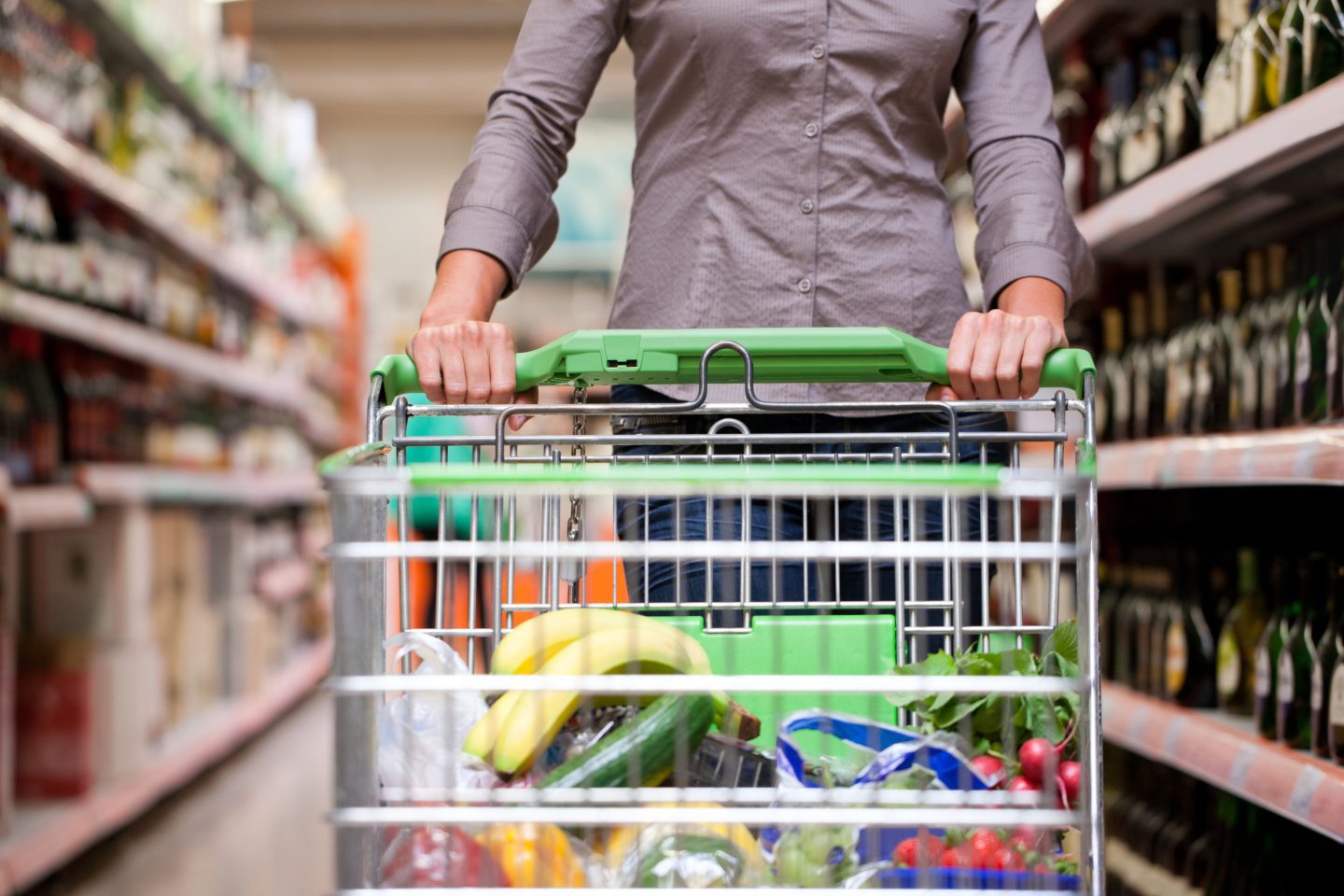Times are hard, but businesses and politicians trying to cash in on difficult circumstances might be making things even more difficult, writes David Knight.
The supermarket checkout workers at a Tesco store in Aberdeen were aghast at this full-frontal attack on Scottish democracy.
You might be forgiven for thinking it was about Nicola Sturgeon’s carefully manufactured outrage over Westminster blocking her bid to destabilise UK gender law all the way from Bute House. Or her hare-brained plan to turn the next Scottish parliamentary election into a de facto independence referendum; a contradiction so alarming that it is like a sudden proclamation from Holyrood that sea bass will be known forthwith as a loaf of bread.
Not surprisingly, the checkout chat was not about these political machinations. No, the redoubtable ladies at Tesco were stunned by breaking news far more important than that.

Our attention was focused on two six-packs of flavoured water I loaded onto the conveyor belt thingy. Or, to be more precise, the cost of them.
“These were £2.89 per pack yesterday – they are £3.55 today,” spluttered one of the supermarket staff, with rising indignation.
She grabbed the offending bottles by the scruffs of their necks and held them up for all to see. Equally-shocked colleagues rolled their eyes in disbelief.
“I’d go to Aldi if I were you, their flavoured water is cheaper and just as good,” she advised.
Are prices rises for genuine reasons?
As I left the store, the car radio was telling me food prices had soared by 17%. It didn’t need to tell me; my till receipt was screaming something similar.
Tension at the tills shows our patience is wearing thin over the cost of shopping.
But there was one crumb of comfort: I had bought a pack of 24 Oxo cubes for £2.50, but I noticed a pack of 12 next to them was £2.40. All of a sudden, I felt good.
Was this a saving? Was it a clumsy juxtaposition, or a cunning piece of retail-pricing brilliance which went straight over my head?
The cost-of-living crisis is, indeed, doing strange things to prices. Is it all down to genuine costs being passed on by manufacturers and retailers, or is there some profiteering going on? A little icing on the cake, so to speak.
While we’re on the subject of pastries, doughnuts have taken a pasting at Morrisons, too, where the price has risen faster than their dough.
These bottles of water had only come a few miles down the road, from Macduff. I knew this from studying the small print on the label
It’s a well known fact that wars are good for profits, and Putin’s invasion of Ukraine has been a huge driver of inflation and interest rates, and sent stock markets soaring.
But these bottles of water had only come a few miles down the road, from Macduff. I knew this from studying the small print on the label.
No point arguing why it was more expensive on our own doorstep – we should know from North Sea oil that this view doesn’t hold water.
And I could see that the poor old bottlers in Macduff were merely part of a bigger group, based in Holland. The mysteries of economics are beyond me.
It’s easier to whip up hysteria than build a proper case for independence
While we struggle with the reality of life at the tills, which ring like a guillotine slicing through our finances, Sturgeon shops around for a new confrontation with Westminster over gender law.
What bugs me about it is the ludicrous, militaristic language. The Supreme Court rebuffing her referendum bid was described by the first minister as an attack on Scottish democracy, and the Westminster section 35 gender recognition reform decision was a “full-frontal attack” on the Scottish parliament.
What nonsense; I seem to recall Lord Reed – in the referendum ruling – reminding Sturgeon of a fundamental and inconvenient flaw in her argument: that Scotland was not actually being “actively oppressed” by anyone, least of all Westminster.
But sloppy, dangerous, warlike rhetoric pours forth.
Sturgeon’s words were actually insulting to those genuinely under threat from real and terrifying attacks
Sturgeon’s words were actually insulting to those genuinely under threat from real and terrifying attacks on two of the biggest democratic seats of government in the world – in the US and Brazil. And those laying down their lives in Ukraine, as Putin trashes democracy.
But it’s easier to whip up hysteria than build a proper case for independence. And to pretend there is a “mandate” for a referendum when there isn’t – support for Yes has been under 50% for more than a decade.
‘First minister, do you know the price of flavoured water?’
Sometimes politicians who are too full of themselves are brought back to earth by one killer question: “Do you know the price of a loaf of bread?”
It’s often rolled out as a trick question by political reporters. It trips up powerful people who don’t have to worry about piffling details which terrify the rest of us.
Sturgeon has probably been well briefed by the SNP spin machine about bread prices.
But I might slip into one of those carefully-controlled press conferences she dominates, and ask: “First minister, do you know the price of flavoured water?”
David Knight is the long-serving former deputy editor of The Press and Journal



Conversation